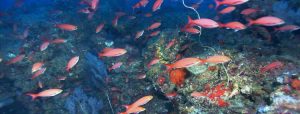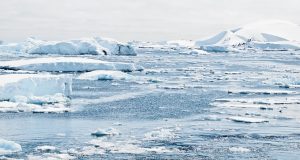
Figure 1: Fish being caught in the ocean Source: NOAA Fisheries
As we all know, fish is one of the world’s most essential resources. Not only is it a staple in many diets, but it’s also important for animal feed production and has become valuable in the pharmaceutical industry. In the past couple decades, nearly 90% of fish was caught in oceans and seas. Although presently, its abundance may not be much of a worry to fisheries for sufficiently supplying this resource, researchers discovered that by 2300, productivity in fisheries could significantly decrease by up to 60%.
In a recent study published in Science on March 9th, 2018, climatologists at the University of California, Irvine (UCI) have created a computer simulation of the earth subjected to 300 more years of global warming, from which they found a 20% decrease in productivity of global fisheries and an alarming 60% decrease for fisheries in the North Atlantic. The simulation caused a 9.6-degree Celsius increase in surface air temperature which is roughly 10 times warmer than what it is now. This model shows that sustained warming of the earth will cause rising ocean temperatures, changes in wind patterns, and the melting of ice sheets along Antarctica (Figure 2) – all of which harm marine ecosystems especially in the north.

Figure 2: Melting ice sheets of Antarctica Source: Pixabay
These changes directly impact the growth of phytoplankton, an organism at the lowest level of the marine food chain. Currently, nutrients in the ocean rise to the surface around Antarctica and flow to the north supporting the growth of marine organisms including phytoplankton and fish. However, with increasing ocean temperatures, comes an increase in phytoplankton by 52% due to the favourable growth environment made by sustained warming. Larger phytoplankton populations prevent nutrients from moving into the north and “…end up trapping the nutrients near Antarctica” states J. Keith Moore, a professor at UCI.
The simulation creates a picture of the future, providing us another reason to “…aggressively reduce our fossil fuel use and emissions of greenhouse gas pollutants” says Moore, in order to sustain fish population in the north for more centuries.
-Annelie Reyes
